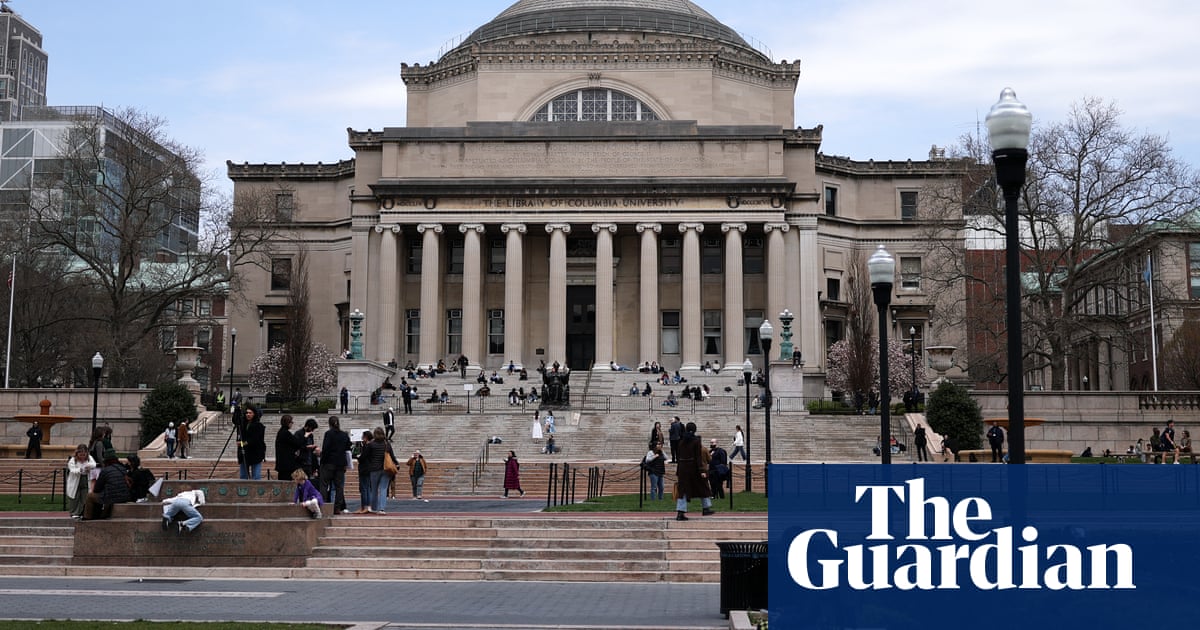New York’sColumbia University is slated to cut 180 staffers whose work was supported by federal grants that have now been revoked by theTrump administration, the college’s acting president, Claire Shipman,announcedon Tuesday.
“We have had to make difficult choices and unfortunately, today, nearly 180 of our colleagues who have been working, in whole or in part, on impacted federal grants, will receive notices of non-renewal or termination,” Shipman said in a lengthy notice posted on Columbia’s website.
Staff cuts follow thecancellation of $400min federal grants and contracts to Columbia University because of what the Trump administration alleges is the college’s failure to protect students fromantisemiticharassment.
The universitylater yieldedto a series of changes demanded by the administration, including setting up a new disciplinary committee and initiating investigations intostudents critical of Israeland the war in Gaza.
Shipman said elsewhere in the notice that the university was continuing discussions with the federal government on funding to resume research activity.
“We are working on and planning for every eventuality, but the strain in the meantime, financially and on our research mission, is intense,” Shipman wrote, adding that the university was adjusting and in some cases reducing “expenditures based on current financial realities” as it pursues alternative sources of funding.
Shipman said the cuts represented about 20% of the individuals who are funded in part by the terminated grants.”We do not make these decisions lightly. We are deeply committed, at Columbia, to the critical work of invention, innovation and discovery,” she said. “Increasing budget constraints combined with uncertainty related to future levels of federal funding for research … requires us to make difficult choices.
“We have had to make deliberate, considered decisions about the allocation of our financial resources. Those decisions also impact our greatest resource, our people. We understand this news will be hard.”
Earlier this year, Columbia acquiesced to administration demands that laid out measures including banning face masks on campus, empowering security officers to remove or arrest individuals, and taking control of the department that offers courses on the Middle East from its faculty.
Sign up toThis Week in Trumpland
A deep dive into the policies, controversies and oddities surrounding the Trump administration
after newsletter promotion
But the agreement did not automatically lead to a restoration of federal research funding. Despite a $14bn endowment fund, Columbia said on Tuesday that “federal actions” required it to look across all areas of the university for to cut costs.
The university also said it had developed programs to streamline its workforce through attrition, planned to launch a voluntary retirement incentive program, make cuts to administrative expenditures, and “continue to make prudent budget decisions that will ensure long-term financial stability across the university”.
“This is a deeply challenging time across all higher education, and we are attempting to navigate through tremendous ambiguity with precision, which will be imperfect at times,” Shipman wrote.
